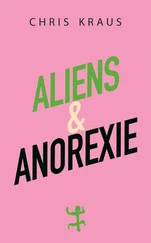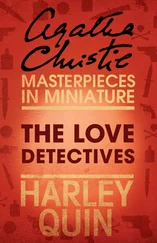EXHIBIT K: MESSAGES FROM THE COUNTRY
Thurman, New York
December 23, 1994
Friday, 11:30 p.m.
Dear Dick,
I got here before dark in time to see Hickory Hill and the two humpbacked mountains west of Warrensburg come into view.
Warrensburg looked as timelessly rundown as ever—Potter’s Diner, Stuart’s Store, LeCount Real Estate lined up along Route 9… that total absence of New England charm that we find so appealing. I drove 12 miles along the river, past Thurman Station to the house to find Tad, a friend who stays with us there. But he wasn’t in, so I went down to the bar in Stony Creek to find him.
The O’Malley’s trashed the house before leaving, as I expected. The entire Town of Thurman looked just as bad. The new zoning gives everyone the freedom to do anything. Now there’s an ugly little homemade subdivision right next door. No one’s crazy enough to waste money gentrifying the Southern Adirondacks. It’s a diorama of A Hundred Years of Rural Poverty, each generation leaving relics of its failed attempts to make a living from this land. Tad and I had drinks and then came back to unload the truck. He’s been living here since the O’Malley’s left.
But I wanted to tell you how exhilarating it felt to step out of the truck and feel the cold dark air around Stony Creek’s four corners. There’s just one streetlight so you can see every single star. Five hundred people 15 miles away in all directions from anything. Unlike California, upstate New York doesn’t lend itself to spiritual retreats or communes. People like Tad who moved here 20 years ago found out the only way they could make it through eight months of winter was by turning into locals themselves.
But that was earlier. My hands are dry and dirty and I’m tired. So Dick, I guess we’ll pick this up later.
xxxxo, Chris
Thurman, New York
December 24, 1994
Saturday, 10:30 p.m.
Dear Dick,
Right now I’m sitting up against some pillows on the floor of the front-north bedroom looking up at the bed I bought in Tennessee—this stupendously beautiful thing I’ve been working on tonight, massaging with rags dipped in walnut oil, then shining. It’s made of poplar, “the pauper’s hardwood,” and Tad says you can tell it’s old because the curves were made without electric tools. There was a lot of pleasure in this, rubbing in the oil and feeling with my hands how it was made. I’ve always wanted something like it.
Tonight I said to Tad we’re starting a Shaker commune here: no sex and we work without ceasing. I’ve been enjoying the comfortableness of the time here with him very much. Tonight I felt tremendous admiration for Tad, his brave cheerfulness. It’s Christmas Eve and here we are alone, he much more so than me: no tree no families no plans. And Tad is such a sentimentalist. Last year his ex-wife ran away with their three children to Australia. Now he’s downstairs finishing a woodwork project, not feeling sorry for himself at all.
I realize I haven’t told you anything about this place—will I be able to make you understand? It’s so different here from California. At the hardware store this morning Earl Rounds asked me where I was living. I said, across the road from Baker’s. Oh, Earl said, the old Gideon place.
No matter who else comes and goes this house will always be “the old Gideon place” to the locals. The Gideons were an older couple from Ohio who bought the house when it was the Great Dartmouth Tract, a farmhouse/dude ranch on 125 acres. This was in the 1970s and people must’ve still taken “family vacations” though of course the place was closed eight months a year. One night in January Mrs. Gideon ran screaming, naked across High Street and pounded on Vern Baker’s door for several freezing minutes ’til he woke up and let her in. Exposure. Two days later the Gideons packed up and drove away never to be seen again. Did they go back to Ohio?
Last New Year’s Eve a New Jersey oil company executive walked off into the woods at Harrisburg wearing nothing but a cashmere cardigan, slacks and loafers. He died quickly of exposure.
Down the road from Baker’s there’s Chuck and Brenda. I loved Brenda, she was my Hick Correlative—a manic depressive chain talker who threw her energy into buying up distressed slum houses. Chuck, an otherwise unemployable alcoholic, renovated them. She owned about 15 of them, even got a HUD grant to build apartments in Minerva, but everything collapsed when she refinanced them. She and Chuck began a 1500 foot addition to their house to accommodate her four children. But it’s five years later and the two kids by her first marriage have long since moved out, back to Warrensburg with their father, because they couldn’t stand Chuck and Brenda’s screaming. Now she’s working as a chambermaid and selling Amway products. All that’s left of Brenda’s empire is a pink Jacuzzi with brass faucets gleaming in an unheated shell of plywood nailed to 2x4’s. If you live here long enough everything becomes a story.
Sylvère and I bought this house from a young couple of Jehovah’s Witnesses. He’d inherited it from his parents, Long Islanders who bought it as a hunting camp. No one here remembers them and I doubt Sylvère and I will leave much imprint either.
Dick, I’ve never been much of a journal writer, but it’s been so easy to write to you. All I want is that you should know me, or know a little about what I’m thinking, seeing. “And the moon of my heart is shining forth,” a Japanese courtesan named Lady Nijo wrote at the end of her confessions. I’ve never thought writing could be such a direct communication but you’re a perfect listener. My silent partner, listening so long as I stay on track and tell you what is really on my mind. I don’t need any encouragement, approval or response as long as you are listening.
Tonight I read a strange and creepy book about Elaine and Willem de Kooning. Really it’s a portrait of a period that believed in the utter worthlessness of women—“art tarts” and a few “girl artists” all orbiting around the big Dicks. Put it together with Odd Girls and Twilight Lovers: A Secret History of Lesbian Life in Twentieth-Century America and it’s impossible to understand how we got from there to here. Stranger than the fall of the Gang of Four after the Chinese Cultural Revolution.
I’ll close for now,
Love, Chris
* * *
For Christmas, Tad gave Chris a diary: a blank book with Edward Hopper’s picture of a tough young woman in a straw hat and flimsy dress leaning up against a pillar on the cover. Looking for trouble?
Chris walked along Mud Street Christmas morning past Josh Baker’s trailer wondering if she could describe this place to Dick as well as David Rattray wrote about East Hampton. Could Dick even understand her feelings about Thurman? It was different from his Wild West adventure because she’d lived here, taught school, knew half the town and could never float above the surface of it.
That night she was invited to spend Christmas with her friend Shawna’s family in New Jersey. She drove down alone, experiencing every blurry alteration in the landscape with a chill. That night she sat up late in the living room writing her first diary entry. Impossible to write alone. The diary begins: Dear Dick.
Somewhere on the trip across America she’d made a promise (to herself? to Dick?) to write him every day whether she felt like it or not. In the vast scheme of human effort, this wasn’t much to do. (As a teenager she’d gotten through rough visits to the dentist by thinking about the bravery of China’s poor and lower middle peasants.)
Читать дальше
Конец ознакомительного отрывка
Купить книгу












